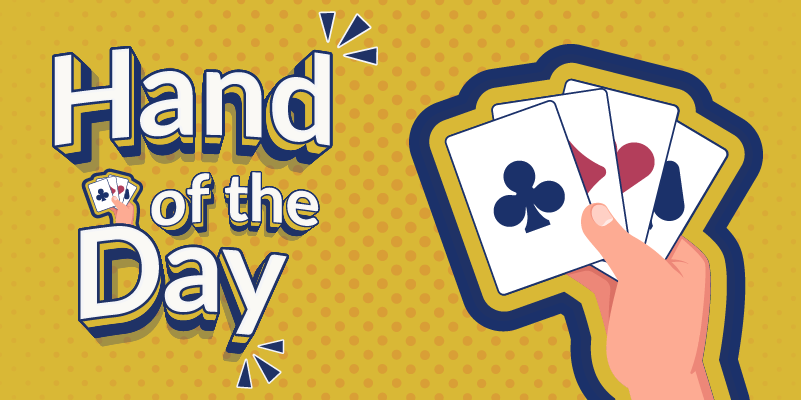



This conundrum was written by Mark Horton and was originally published in the book Misbid these hands with me - you can find out all about it further down the page.
Playing in a major online team event with a world-class partner, I pick up a powerful hand as South, with only the opponents vulnerable:
♠ J 9 7 3 2 ♥ A K Q 3 ♦ A 6 ♣ A K
I am dealer, and I could open 2NT, but I don’t care for the shape and it can lead to a difficult auction. These days an opening bid at the one-level is rarely passed, so I start with 1♠. Partner responds 2NT, which shows spade support, and I continue with an artificial 3♣, which is game-forcing. Partner’s reply of 3♦ indicates three-card spade support and 10-11 points. I continue with 4♣, hoping to see partner cuebid 4♦, but he can only produce 4♠. The fact that partner does not hold the ♦K suggests that his spades must be quite good, so I decide to press on with 4NT, to which partner responds 5♣, promising one keycard. That allows me to bid 5♦, asking about the ♠Q, and partner jumps to 6♠, confirming that he has it. That concludes our lengthy sequence:
West leads the ♥10 and this is what I can see:
When East follows with the ♥8, I win with the ace and play a spade, West winning with the ace as East follows with the ♠6. When West continues with the ♥9 East ruffs, so I am one down on this layout:
Post-Mortem
Going down in 6♠ was unlucky, but it was not the best slam. You can see that 6♥ is very good, and 6NT played by South is also excellent. Suppose I bid 3♥ over 3♦? If North raises to 4♥, the advantages of playing in hearts will be obvious. Although it will no longer be possible to ask about partner’s spade holding, when a cuebid of 5♣ does not see partner bid 5♦ it will be clear that his spades must be good, and South can bid 6♥. In the other room, South again opened 1♠. When North responded with an artificial 2♣, South rebid 2♦, which showed a good hand. North’s 2NT saw South try a 5NT ‘pick-a-slam’, but when North bid 6♠, South converted it to 6NT. East led the ♦2 and with no choice declarer had to take the finesse. West won and somewhat nervously cashed the ♠A, so there was no swing.
Eight pairs in this event reached 6♠ — and one of them was allowed to make it even though West led a heart. Thirteen pairs bid 6♥. Five pairs were in 6NT, the other four playing from the right side. The remaining ten pairs stopped in a variety of games.
In 2007, Horton wrote Misplay These Hands with Me, a deliberate homage to Reese's classic, Play These Hands with Me. The difference was that the declarer in Horton's book always made an error, sometimes obvious, sometimes not so much. This successful book was the basis of a long-running column in the ACBL's Bridge Bulletin, a sequel in 2019, and earlier this year, Misdefend These Hands with Me. Now the same author turns to the topic of bidding, and once again gives the reader a chance to learn from someone else's mistakes. All the deals are taken from top-level play.



